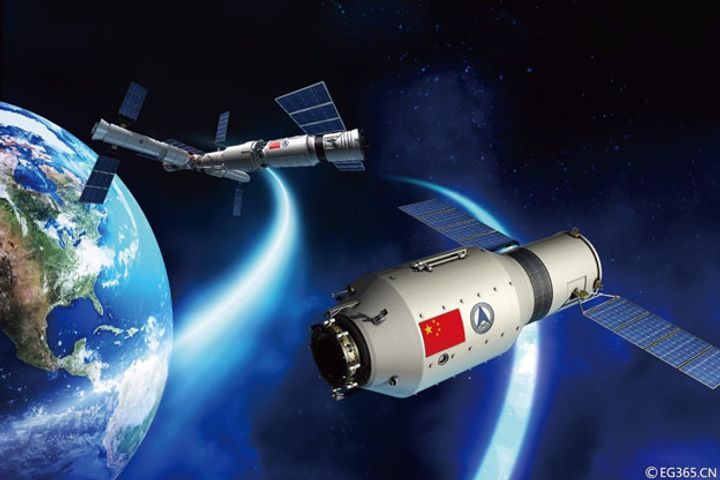 CAS' Cold Atom Clock Will Raise Time Accuracy Tenfold in Space
CAS' Cold Atom Clock Will Raise Time Accuracy Tenfold in Space(Yicai Global) July 25 -- The high-performance cold atomic clock (CAC) installed on the Chinese space laboratory Tiangong-2 has improved its space time-measurement precision by one to two orders of magnitude, thus pushing forward frontier research into satellite navigation and fundamental space physics, a recent article from Chinese researchers stated, state Xinhua News Agency reported.
The space application system for manned spaceflight project, led by the Chinese Academy of Sciences, has carried out 14 space science and application tasks on Tiangong-2, including the world's first in-orbit space CAC with related scientific experiments.
This CAC has completed all its scheduled in-orbit tests in the past two years, successfully verifying its operating mechanism and features and achieving an ultra-high precision of 7.2 x 10^-16 for stability, as an article appearing in the UK journal Nature Communications related.
"Traditional atomic clocks which use hot atoms, however, have been limited to 10^-15 orders of magnitude in regard to space stability. We are using cold ones to attain even higher precision," Liu Liang, the article's author and a researcher at Shanghai Institute of Optics and Fine Mechanics, CAS told state Xinhua News Agency.
The CAC takes the transition signal between two energy levels of the atom as the reference frequency output signal and uses a laser to lower the atomic temperature to near absolute zero (about 273.15 degrees Celsius below zero), so as to minimize external interference in the transitional frequency between atomic energy levels and thereby attain higher precision.
"We are set to miniaturize the CAC for use in satellites. Such an atom clock which will be used in the BeiDou Navigation Satellite System (BDS) in the near term is expected to improve its performance by one order of magnitude," Liu said.
BDS is China's proprietary satellite positioning navigation service system.
After being installed on the navigation positioning system, this high-precision atom clock which enables reliable operation in space will improve the independent operational capacity and navigation positioning accuracy of the system. It is also of signal significance in advancing the measurement of fundamental physics constants and verification of general relativity theory, the research team said.
Editor: Ben Armour